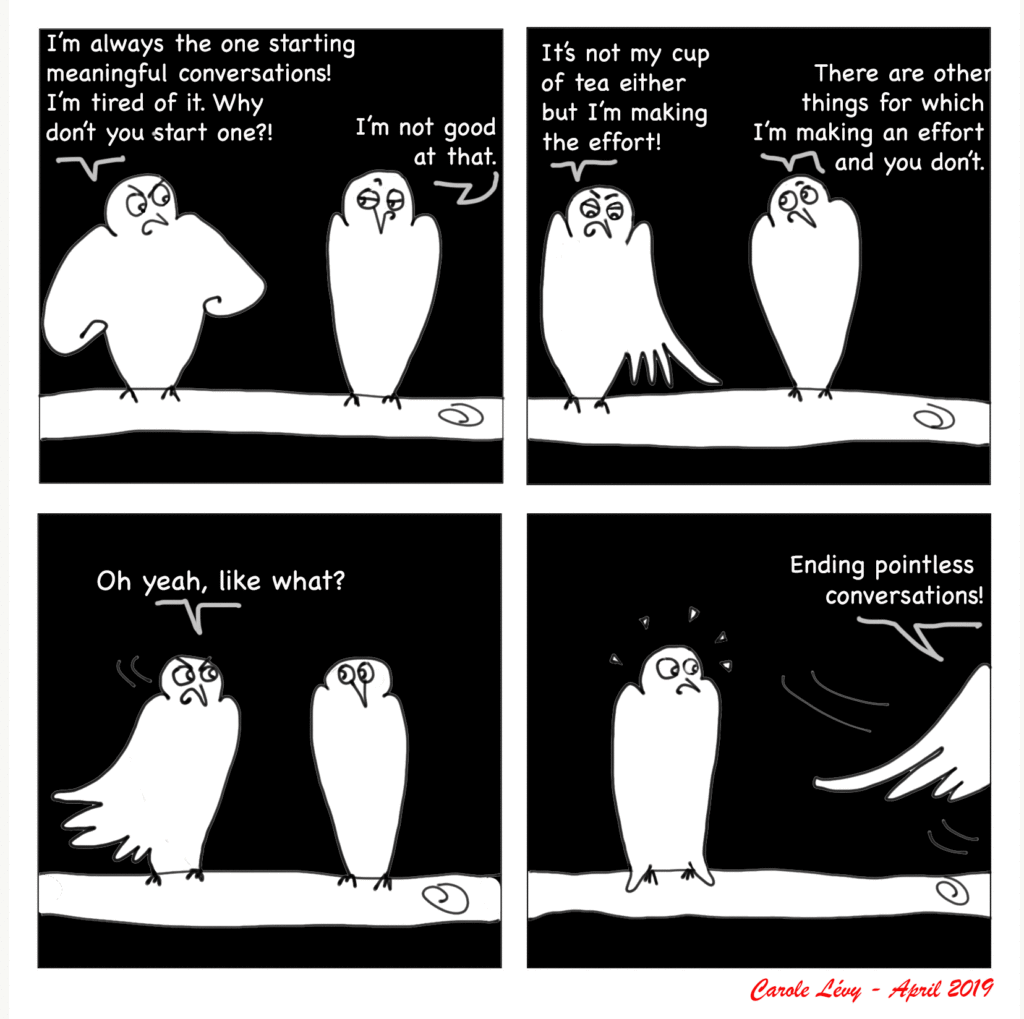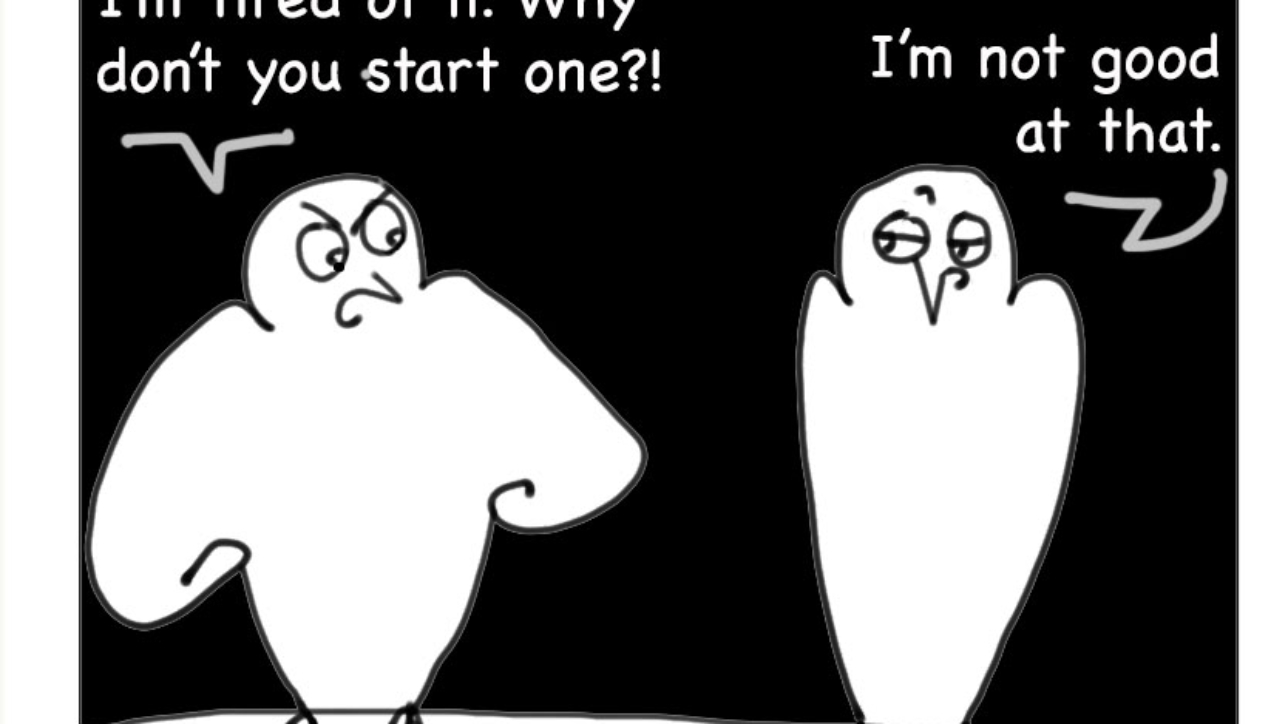
If, like me, you sometimes say to your partner, in a self-assured-accusatory tone, “I’m always the one who…”, you know that it leads nowhere. Right?
Technically, we are saying (more or less) “I want you to engage with me in this conversation as an equal partner”, but energetically we are saying “I’m better than you,” and thereby sabotaging any possibility of our partner attempting to engage with us.
There was a time when I was pushing for equal partnership and reciprocity with my husband. My need was genuine, and it was met. I was clear – not angry. We sat down and both agreed on what we respectively needed to change in order to create a true reciprocal relationship.
But today, when I am stressed and say to my partner: “I’m always the one who blah blah blah”, it has nothing to do with equal partnership and reciprocity.
On the contrary, it has to do with “releasing my anxiety on the other one when I feel powerless”. In the Learning as Leadership lingo, it is called a diversion.
For example, this year, my husband and I have to make a decision about whether or not to go back to France in July, as we usually do. For various reasons, it is hard for us to think, talk and decide about it together.
Instead of proposing to my trusted husband that we sit down and have a conversation, beginning by asking him about his thoughts, listening attentively and then suggesting we explore our options, here is what I say:
“- We have to talk about this summer!”. Which would be okay if there wasn’t already an impatience in my voice that is immediately followed by: “- And why am I always the one initiating the conversation about going back to France? Which is usually extended to: “- Why am I always initiating ALL the meaningful conversations in our household”?!
Thankfully, I’m tired of being “the one always derailing good communication!”
And I’m committed to creating the space for others to be the equal partners they are longing to be in conversation with me.
Personal Reflection: At work or at home, do you create enough space for others to be your equal partners?








O man, this rings so true. I can’t think of how many times I am afraid to ask for what I really need, and then vent my frustrations for being isolated, powerless or on my own. Good for you for bringing it into the light for yourself. xo
Well, I can’t sometimes bring all the nuances in my post, but talking about my needs, expressing requests and let go of the outcome is still a work in progress! Thanks for sharing Kelly!
Carole, I love all of your blogposts but this one really resonated with me. Everything you said is true, but sometimes the partnership can’t be equal. Due to my husband’s health issues, he is genuinely unable to be a partner in the details of life or provide the emotional support I associate with marriage. I recently realized that I had a strong subconscious belief about the kind of support that is foundational to the marital relationship, and I’m sure that everything I said to him carried the undertone that “you’re doing marriage wrong!!” The reality is that it’s impossible for him to meet those expectations, so my beliefs about that are irrelevant, counterproductive and stressful. Once I saw this, I was able to release that counterproductive belief, and without saying a word about it or making any other changes, it has totally shifted the dynamic between us — and it actually feels more like a partnership again. Marriage certainly is a learning journey, isn’t it?
Robin, thank you for your vulnerable and thoughtful comment – and reminding us that equal partnership is a complicated concept. I’m still working on it. Your sharing is inspiring. Warmly,
Oh my goodness…this hits home for me with my husband’s recent retirement. Every household task now becomes “why do I always have to…” I have to reset my intention to be a good partner and not a good martyr! When I approached him with vulnerability, the results were a meaningful conversation. I have a renewed commitment not to nag.